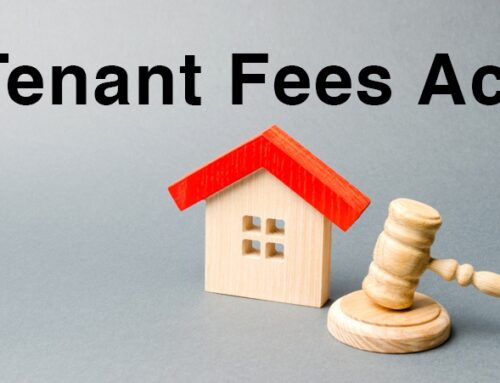Home » Uncategorised »
Who’s enforcing The Tenant Fees Act? New law relies on honesty and tenants being in the know
This article is an external press release originally published on the Landlord News website, which has now been migrated to the Just Landlords blog.

Despite the introduction of the tenant fees ban back in June, there are still some glaringly obvious flaws in the Government’s plan to simplify and reduce tenant fees. The act relies on all parties being fair and honest, and being up to date on the law rather than true enforcement of the new rules.
Tenancy deposits are now capped at a maximum of 5 weeks’ rent providing the annual rent is under £50,000. This cap increases to 6 weeks’ for properties with
The Deposit Protection Service (DPS) highlighted last month that despite seeing a drop in the number of deposits that exceed the cap, more than 40% are still higher than current legislation allows. It may be the case that many of these deposits are left over from tenancies that began before the ban and will simply be reduced once they are renewed.
And whilst the change to the law specifically stops extra fees and deposits going above the limit, it did not protect against landlords and letting agents simply increasing monthly rent payments to make up for their reduced income elsewhere. Back in July, David Cox at Arla Propertymark released figures showing that rents had increased across the country since the ban came into effect:
“Unsurprisingly, rent costs hit a record high in June as tenants suffered the impact of the tenant fee ban.
“Ever since the government proposed the ban, we warned that tenants would continue to pay the same amount, but the cost would be passed onto tenants through increased rents, rather than upfront costs.”
In another example, landlords across England have started charging additional rent for pets as they are no longer allowed to ask for a higher ‘pet deposit’. Whilst it is understandable that landlords may be concerned about extra cleaning charges or damages caused by animals, and must cover those costs somehow, the tenant fees ban has forced them into a corner in which they have no other choice.
Tenants with animals now find themselves in a situation in which they were better off before the ban: owners that made sure their pets didn’t cause additional damage got their money back, but by adding it onto the rent, they will never see that money again.
It is clear that the banning of tenant fees has been ineffective, but it has also arisen that the policing of the new law is equally impotent. The system relies almost entirely on landlords knowing their responsibilities and being honest about the way they conduct business, whilst on the other side, tenants are expected to keep up to date with their rights and report landlords that they believe are flouting the rules.
The new law was meant to protect vulnerable tenants and punish the small minority of rogue landlords, but has shown itself to have very little effect on the groups it was meant for.
In the case of landlords exceeding the maximum deposit cap, the deposit schemes themselves cannot enforce legislation. A spokesperson from The DPS had this to say:
“Our systems provide landlords with information that helps them understand the regulations affecting tenancy deposits, and we remind them of the cap specifically when they are registering deposits. We also have extensive communication and training
“Nevertheless, all tenancies are different, and it is ultimately the responsibility of landlords themselves to make sure they are compliant with any relevant laws and regulations. While our systems are designed to help inform landlords and tenants, we are not responsible for enforcing legislation.”
With no clear direction or follow-up from the Government, rogue or unaware landlords are essentially free to continue charging high deposits and unfair fees until they are (un)luck enough to be reported by a clued-up tenant. More must be done to ensure that The Tenant Fees Act is being followed and enforced.




